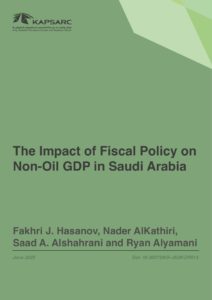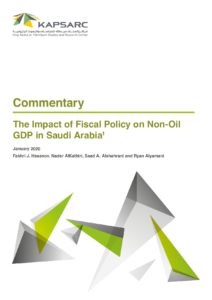Saad is Deputy Minister for Macro-Fiscal Polices at the Ministry of Finance, Saudi Arabia. Previously, he was an economist at the International Monetary Fund. He has served as a senior economic specialist at the Research and International Affairs Deputyship at the Saudi Arabian Monetary Authority. He has also been an assistant professor at Prince Sultan University, and a member of the establishment secretariat of the Gulf Monetary Council. Saad is a board member of the Saudi Economic Association and the International Islamic Trade Finance Corporation (ITFC). He is also a member of the Economic Policies Committee (EPC) at the OECD, and a member of the Financial Stability Committee. His research interests and experience encompass macroeconomic and fiscal policy, economic growth and development, public finance management, and econometrics. He received a B.S. in mathematics, and two M.Sc. degrees in statistics and economics, and a Ph.D. in economics.

The Impact of Fiscal Policy on Non-Oil GDP in Saudi Arabia
A clear objective of Saudi Vision 2030, the strategic roadmap for the future of the Kingdom of Saudi Arabia, is to put the non-oil sector at the heart of the country’s economic development. The vision realization programs (VRPs), such as the National Transformation Program and Fiscal Balance Program (FBP), have established initiatives and targets to help develop the non-oil sector. It is important, then, to explore the role fiscal policy can play in developing the country’s non-oil sector.
19th July 2020
